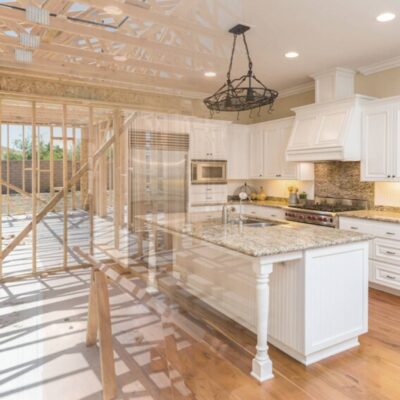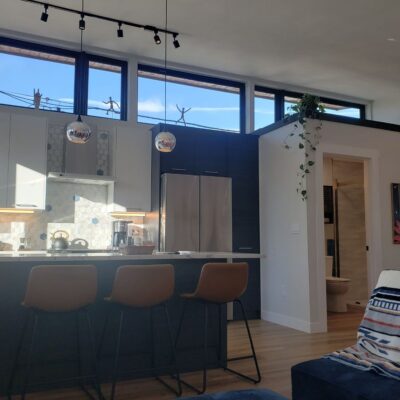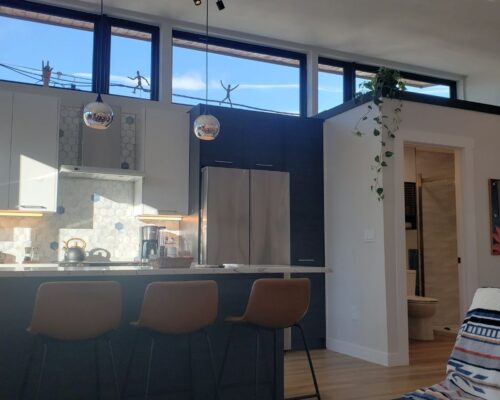BLOG
The Top 5 Things to Know When Planning a Home Addition
 Planning an addition to your home can be exciting – and nerve-racking. While the prospect of adding more room or features to your home can feel promising, as with any construction job, it’s best to carefully plan out your addition before construction begins.
Planning an addition to your home can be exciting – and nerve-racking. While the prospect of adding more room or features to your home can feel promising, as with any construction job, it’s best to carefully plan out your addition before construction begins.
This planning-out process will vary depending on you, your home, and your planned addition, but there are some things that everyone planning a home addition should keep in mind. We’ll walk you through five things we feel you should keep in mind while planning a home addition in Denver.
1. Is Your Contractor Licensed & Insured?
All contractors in Colorado are certified, insured and licensed, right?
Not quite. While proper licensing and other credentials are broadly recommended for all contractors to have, they aren’t strictly necessary for a contractor to operate. This means, if you don’t properly vet a contractor before hiring them, you may be hiring a company that isn’t insured, lacks proper contractor’s licensing, and may even damage your home or its new addition.
The easiest way around this potential hazard is to verify that your choice of contractor has their proper licensing & insurance. If they do, they’ll never hesitate to tell you – contractors who do, or who downplay the importance of a contractor license, are likely unlicensed themselves. If you’re in the market for a home addition, make absolutely sure your choice of contractor is properly licensed and insured.
2. Do You Have a Definite Idea In Mind?
You’ve all got ideas of what we might want in a home addition – maybe it’s a larger bath, an additional bedroom, or space for a few new appliances. While it can be fun and exciting to daydream about your new addition, only a reputable contractor will have a solid idea of your idea’s feasibility.
When you meet with your contractor for the first time, have a concrete idea of what you want your new addition to be. Specify your desired appliances and installations, decide where you’d like them to go, give some rough dimensions of your new addition, and give some input about things like windows and lighting. Then, work together with your contractor to draft up a final plan for your addition together.
3. How Will You Match The Rest of Your House’s Style?
Your addition will be a natural, ideally seamless extension of your home. To make your addition as much a part of your home as any other, you’ll need to know more than just what your extension is to look like, but you’ll need to be deeply familiar with your home too.
A seamless addition is built from the same materials as the rest of your home and follows the same design patterns.
Ask yourself what you and your contractor will need in order to best match your home’s overall look?
What building materials does your home use? What architectural accents does it feature? What design language does your home follow? What era was your home built?
All these things and more will determine a lot about your new addition, from price and labor costs to construction time and shipping expenses. Your contractor will help you nail down what will be necessary to ensure your addition’s seamless finish.
4. What Will This Addition Add To Your Home’s Value?
Your home’s an investment – realtors won’t hesitate to remind you of that. And just like with any investment, adding to your home will almost certainly boost its value.
When you build an addition to your home, you aren’t just making it a nicer place to live, you’re making an investment in the future value of your home. As with other large investments, it’s important to carefully consider it before jumping in and investing.
Ask yourself what it is you plan to do with your home – do you plan on sticking around in your home for the foreseeable future? Or are you more likely to consider moving out in favor of another home? Also, consider asking yourself how much value you and your home’s other residents will benefit from your addition – is that garage addition still the best investment now that your kids (and their cars) have flown the nest?
Or alternatively, if yours is a younger family, could this be the perfect time to consider a bedroom addition now that another kid’s on the way?
5. Have You Accounted For Those Often Forgotten-About Expenses?
There’s more that goes into a home addition than may meet the eye. Beyond the new foundation, new walls and new roofs, your home addition will require all of the under-the-hood infrastructures that all your other rooms have.
When you sit down with your contractor, you’ll be given a bigger-picture view of what all goes into your addition. From electricity to plumbing to air conditioning to smart home connectivity, one or more of these often forgotten-about expenses can potentially throw a wrench into your addition’s budget if you’re not careful. Talk with your contractor to iron out these hidden fees, and see what can be done to mitigate them if you find they’re too heavy on your budget.
No matter what kind of home addition you’re planning, we at Prospect 30 Eight will be more than happy to discuss building the addition of your dreams with you. Contact us for a free consultation and quote.







